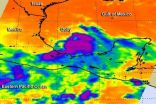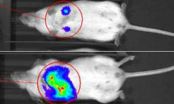(Press-News.org) WASHINGTON – Patients who return to the emergency department within a few days of discharge do so principally because they are anxious about their symptoms and have lost trust in other parts of the health care system, according to the results of a study published online today in Annals of Emergency Medicine ("Return Visits to the Emergency Department: The Patient Perspective").
"When asked why they did not follow up as an outpatient, patients reported feeling that their symptoms were too severe to wait until their scheduled appointment or being instructed to return to the ER by the outpatient provider they contacted," said lead study author Kristin Rising, MD, of the Department of Emergency Medicine at Thomas Jefferson University in Philadelphia, Penn.
The paper goes on to say that patients' "decision to return to the emergency department [was] driven largely by fear and uncertainty regarding their medical conditions as well as a lack of trust in the system to be responsive to their needs." Other prominent themes related to patients' limited use of outpatient care included problems accessing care because of lack of insurance, dissatisfaction with a primary care physician and lack of trust in their primary physician.
Dr. Rising and her team conducted 60 in-person interviews with patients who returned to the emergency department within 9 days of discharge. The primary reason given for returning to the ER was fear or uncertainty about the medical condition that brought them to the emergency department in the first place. Neither discharge instructions from the original visit nor transportation were cited as particular post-discharge problems, though many patients reported that their current illness created problems getting around at home. Forty percent of the patients who returned were admitted to the hospital at the return visit. These patients were most likely to be experiencing a deterioration of what was a chronic or pre-existing condition (such as asthma).
The majority (70 percent) had a primary care physician. When asked about seeking follow-up care in an outpatient clinic instead of the emergency department, patients most often reported that clinics lack the necessary resources to complete the work-up or treatment and to sufficiently address their symptoms. Patients also reported delays in diagnosis associated with outpatient testing and inconvenience related to having multiple appointments on different days as limitations in seeking care in clinics.
"The medical community must learn to meet our patients when and where they need us," said Dr. Rising. "Sometimes, they may just need reassurance, especially when there is no clear explanation for what is causing their symptoms. Going forward, technology may play a role in facilitating connectedness with care teams to help patients stay healthy."
INFORMATION:
Annals of Emergency Medicine is the peer-reviewed scientific journal for the American College of Emergency Physicians, the national medical society representing emergency medicine. ACEP is committed to advancing emergency care through continuing education, research, and public education. Headquartered in Dallas, Texas, ACEP has 53 chapters representing each state, as well as Puerto Rico and the District of Columbia. A Government Services Chapter represents emergency physicians employed by military branches and other government agencies. For more information, visit http://www.acep.org.
Discharged patients return to the ER because 'better safe than sorry'
2014-09-02
ELSE PRESS RELEASES FROM THIS DATE:
NASA satellites calling here you come again, Tropical Storm Dolly
2014-09-02
Tropical Storm Dolly visited Mexico six years ago, and NASA satellite data is calling "Here you come again," reminiscent of the famous country singer's hit song, as another storm named Dolly heads for a second landfall in Mexico.
In July of 2008, Tropical Storm Dolly made landfall on Mexico's Yucatan Peninsula of Mexico before making a second and final landfall in south Texas. Now, six years later, Tropical Storm Dolly returns thanks to the six year list of revolving hurricane names, and once again Dolly is making landfall in eastern Mexico. NASA's Aqua satellite caught ...
Residency training predicts physicians' ability to practice conservatively
2014-09-02
LEBANON, NH – Doctors trained in locations with less intensive (and expensive) practice patterns appear to consistently be better at making clinical decisions that spare patients unnecessary and excessive medical care, according to a new study in JAMA Internal Medicine.
"Growing concern about the costs and harms of medical care has spurred interest in assessing physicians' ability to avoid the provision of unnecessary care," said lead author Brenda Sirovich of the VA Outcomes Group and The Dartmouth Institute for Health Policy & Clinical Practice.
Sirovich and colleagues ...
Experiences make you happier than possessions -- Before and after
2014-09-02
To get the most enjoyment out of our dollar, science tells us to focus our discretionary spending on experiences such as travel over material goods. A new Cornell University study shows that the enjoyment we derive from experiential purchases may begin even before we buy.
This research offers important information for individual consumers who are trying to "decide on the right mix of material and experiential consumption for maximizing well-being," said psychology researcher and study author Thomas Gilovich of Cornell University.
Previously, Gilovich and colleagues ...
Diabetes mellitus and mild cognitive impairment: Higher risk in middle age?
2014-09-02
Essen, Germany, September 2, 2014 – In a large population-based study of randomly selected participants in Germany, researchers found that mild cognitive impairment (MCI) occurred twice more often in individuals diagnosed with diabetes mellitus type 2. Interestingly, this strong association was only observed in middle-aged participants (50-65 years), whereas in older participants (66-80 years) the association vanished. This study is published in the Journal of Alzheimer's Disease.
The concept of MCI describes an intermediate state between normal cognitive aging and dementia. ...
This week From AGU: California earthquake, future Mars rovers, models underestimate ozone
2014-09-02
From AGU's blogs: Earthquake rupture through a U.S. suburb
Observations and mapping by seismologists at the University of California Davis in the hours and days after the August 24 earthquake in northern California are helping scientists understand why the earthquake caused so much damage in the region, according to a post in The Trembling Earth blog, hosted by the American Geophysical Union.
From this week's Eos: Future Mars Rovers: The Next Places to Direct Our Curiosity
Selecting where the next Mars rovers will land involves a series of open-invitation workshops ...
‘Prepped’ by tumor cells, lymphatic cells encourage breast cancer cells to spread
2014-09-02
Breast cancer cells can lay the groundwork for their own spread throughout the body by coaxing cells within lymphatic vessels to send out tumor-welcoming signals, according to a new report by Johns Hopkins scientists.
Writing in the Sept. 2 issue of Nature Communications, the researchers describe animal and cell-culture experiments that show increased levels of so-called signaling molecules released by breast cancer cells. These molecules cause lymphatic endothelial cells (LECs) in the lungs and lymph nodes to produce proteins called CCL5 and VEGF. CCL5 attracts tumor ...
Cool calculations for cold atoms
2014-09-02
Chemical reactions drive the mechanisms of life as well as a million other natural processes on earth. These reactions occur at a wide spectrum of temperatures, from those prevailing at the chilly polar icecaps to those at work churning near the earth's core. At nanokelvin temperatures, by contrast, nothing was supposed to happen. Chemistry was expected to freeze up. Experiments and theoretical work have now show that this is not true. Even at conditions close to absolute zero atoms can interact and manage to form chemical bonds.
Within this science of ultracold ...
Enzyme controlling metastasis of breast cancer identified
2014-09-02
Researchers at the University of California, San Diego School of Medicine have identified an enzyme that controls the spread of breast cancer. The findings, reported in the current issue of PNAS, offer hope for the leading cause of breast cancer mortality worldwide. An estimated 40,000 women in America will die of breast cancer in 2014, according to the American Cancer Society.
"The take-home message of the study is that we have found a way to target breast cancer metastasis through a pathway regulated by an enzyme," said lead author Xuefeng Wu, PhD, a postdoctoral researcher ...
Study links sex hormone levels in the blood to risk of sudden cardiac arrest
2014-09-02
LOS ANGELES (Sept. 2, 2014) – Measuring the levels of sex hormones in patients' blood may identify patients likely to suffer a sudden cardiac arrest, a heart rhythm disorder that is fatal in 95 percent of patients.
A new study, published online by the peer-reviewed journal Heart Rhythm, shows that lower levels of testosterone, the predominant male sex hormone, were found in men who had a sudden cardiac arrest. Higher levels of estradiol, the major female sex hormone, were strongly associated with greater chances of having a sudden cardiac arrest in both men and women. ...
UO-Berkeley Lab unveil new nano-sized synthetic scaffolding technique
2014-09-02
EUGENE, Ore. -- Scientists, including University of Oregon chemist Geraldine Richmond, have tapped oil and water to create scaffolds of self-assembling, synthetic proteins called peptoid nanosheets that mimic complex biological mechanisms and processes.
The accomplishment -- detailed this week in a paper placed online ahead of print by the Proceedings of the National Academy of Sciences -- is expected to fuel an alternative design of the two-dimensional peptoid nanosheets that can be used in a broad range of applications. Among them could be improved chemical sensors ...


